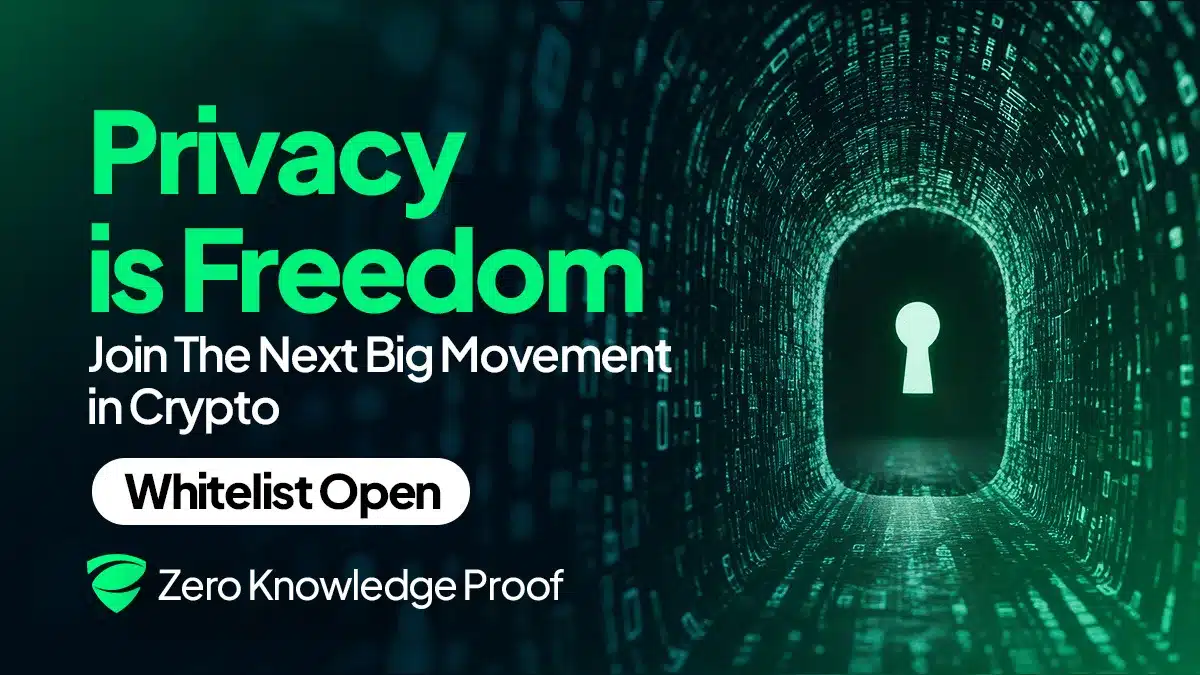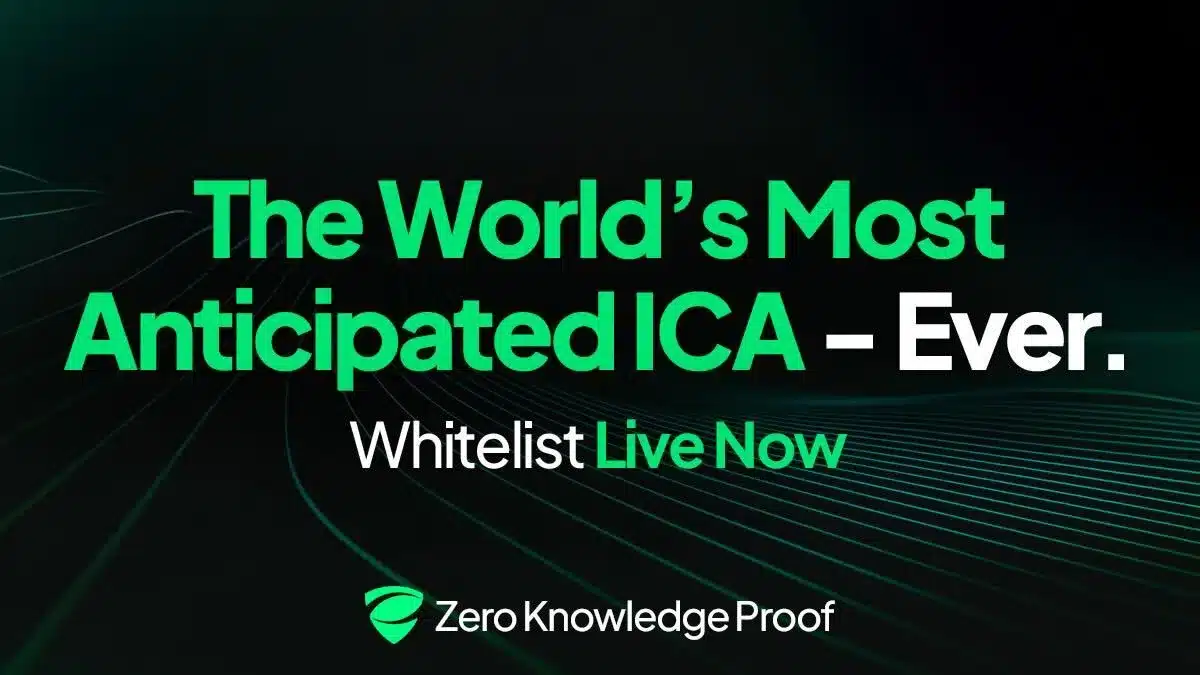Ethereum’s co-founder has made an unusually sharp statement about the future of blockchain. He argues that long-term survivability will depend on systems that are built around zero-knowledge proofs from the start rather than patched onto aging architectures.
Instead of arguing about gas fees or throughput, the conversation shifts to a deeper question: which networks can prove correctness, protect privacy, and execute computation at scale without exposing sensitive data?
This shift necessitates a reevaluation of what constitutes credible development. Marketing promises are irrelevant when the next era of blockchain requires verifiable computation.
In this new direction, every analyst searching for the most aligned upcoming crypto project is asking a simple question: who is building the architecture required for that future, rather than retrofitting old ideas? Zero Knowledge Proof (ZKP) might have an answer to it.
Zero Knowledge Proof (ZKP) Built the Architecture Before Anyone Asked for It
While major layer-one chains are now attempting to transition into ZK-compatible ecosystems, Zero Knowledge Proof (ZKP) has already been engineered from the ground up using zero-knowledge logic. It is not an add-on. It is the underlying design. Yet the more striking element is not technical but financial.
Before selling a single coin, the ZKP team invested $100 million of their own funds into development. There were no venture rounds, no special discounts, and no insider allocations.

This reversal of the industry playbook is why many analysts are calling Zero Knowledge Proof (ZKP) an upcoming crypto project with rare structural credibility. It is arriving at its whitelist phase with operational components already functioning, not a slide deck filled with someday plans.
$17 Million Worth of Proof Pods Are Already Manufactured
A portion of the internal budget was assigned to building physical infrastructure. Zero Knowledge Proof (ZKP) has already produced $17 million worth of Proof Pods, compact devices designed to validate compute tasks using zero-knowledge proof systems. These units are real. They exist today. They are waiting in warehouses for global distribution.
Although shipping will only begin once the presale auction opens, the team has confirmed a worldwide fulfillment model that can deliver within five days. That timing matters. Many presale projects promise hardware long after raising funds. Zero Knowledge Proof (ZKP) enters the market with devices manufactured and boxed, positioning itself as an upcoming crypto project defined by verifiable output rather than imagination.
Initial Coin Auction: Fairness Built Into Code
Instead of a standard token sale, Zero Knowledge Proof (ZKP) introduces an Initial Coin Auction, or ICA. Every twenty-four hours, two hundred million Zero Knowledge Proof coins will be distributed proportionally based on daily contributions. Participants can commit between fifty and fifty thousand dollars and receive allocation at the same rate as every other participant in that day’s pool.

There are no private rounds, preloaded wallets, or hidden multipliers. No seed allocations. No preferential entry. Fairness is not a promise. It is a mathematical structure. In an industry known for insider advantages, Zero Knowledge Proof (ZKP) stands out as an upcoming crypto project that eliminates the mechanisms typically used to tilt markets before launch.
Vitalik’s Vision Aligns With Zero-Knowledge Proof’s Early Execution
Vitalik Buterin’s statement that Ethereum must evolve into a ZK-centric ecosystem is more than commentary. It is an admission that the future requires proof over trust. Zero Knowledge Proof (ZKP) does not need to pivot to meet that standard. It was already built on it. Its compute framework relies on ZK validation, its Proof Pods execute privacy-preserving tasks, and its economics revolve around verifiable work.
While other protocols explore gradual transitions, Zero Knowledge Proof (ZKP) begins its presale already aligned with the direction the industry is moving toward. The result is a network positioned ahead of its time, fitting cleanly into the criteria many use when evaluating the most technologically aligned upcoming crypto project in the current cycle.
A Launch Without Insiders or Personalities
Zero Knowledge Proof (ZKP) has no public founders, no advisory boards, and no venture backers. The builders remain pseudonymous not to obscure themselves, but to remove the need for trust entirely. Their manifesto declares that if fairness depends on the reputation of individuals, then fairness was never real.
Instead, the team embedded a cryptographic puzzle inside the codebase, allowing anyone to uncover their identity through proof rather than belief. Whether the puzzle is solved or not is irrelevant. The system is engineered to operate independently of personality influence. No privileged wallets. No strategic vesting. No pressure from early investors waiting to exit.

This is not ideology. It is structural engineering designed to make the launch immune to manipulation.
Final Take
Zero Knowledge Proof (ZKP) did not wait for the world to accept that zero-knowledge systems represent the next phase of blockchain. It built the infrastructure for that phase in advance, funded it internally, manufactured hardware ahead of launch, and locked fairness into code.
As public networks acknowledge that ZK computation is unavoidable, Zero Knowledge Proof (ZKP) stands out as an upcoming crypto project that already embodies that future, turning theory into functioning architecture and anticipation into measurable progress.

Find Out More about Zero Knowledge Proof (ZKP):
Website: https://zkp.com/
